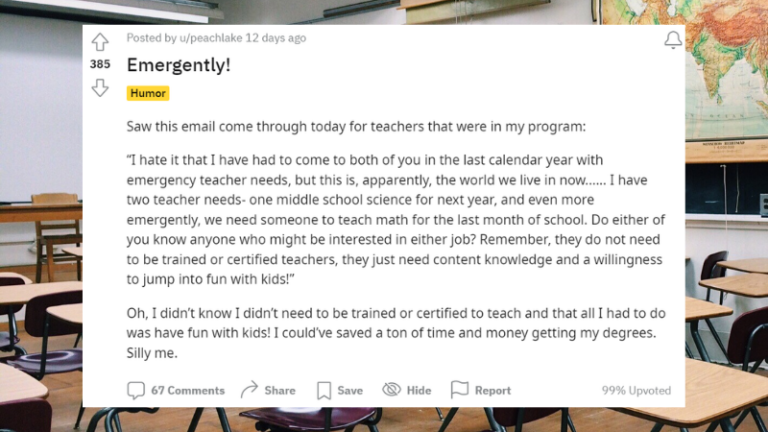In the Midwest, a proposed Missouri bill has sparked a conversation among educators, lawmakers, and school communities. Titled House Bill 2885, this legislation, if passed, would dramatically reshape the support landscape for transgender minors within the school system. It would also put teachers, their jobs, and their futures at risk.
With the death of Nex Benedict not far from the minds of educators, it’s tempting to despair. Instead, let’s discuss the implications of this bill and explore strategies for educators to navigate these new challenges instead of spiraling.
A closer look at House Bill 2885
Missouri’s House Bill 2885 stands as a testament to the ongoing debate over the rights and support of transgender individuals, particularly minors, in the education sphere. According to ABC news, the bill proposes making it a felony offense for a teacher or counselor who “provides support, regardless of whether the support is material, information or other resources.” This includes teachers who support the social transitioning of a transgender student. Social transitioning—different from physical transitioning—includes changes in pronouns, names, and gender expressions such as clothing or hairstyles.
Under this proposed legislation, educators found supporting such transitions could face severe penalties, including up to four years in prison, fines of up to $10,000, and placement on the sexual offender registry. Placement on this registry in many states is lifelong and can impact a person’s ability to find a job and housing, not to mention their perception in their community. This move marks a significant escalation in the legislative efforts targeting the LGBTQ+ community, adding to a growing list of restrictions that have emerged in recent years.
It’s noteworthy that research supports that transgender students’ self-esteem, relationships, and mental health outcomes are all boosted when in environments supportive of their gender identity—particularly when this happens early.
The role of educators amid legislative changes
Teachers play a pivotal role in shaping the educational and social development of their students. In light of House Bill 2885, Missouri educators are now faced with the complex challenge of navigating their responsibilities to their students while adhering to the constraints imposed by potential new laws. The bill raises questions about the extent to which teachers can offer support to transgender students, a crucial aspect of fostering an inclusive and understanding school environment.
Strategies for supporting all students
Despite the legislative hurdles, there are still ways educators can create a nurturing environment for every student. Here are some strategies to consider:
- Fostering inclusivity and respect: Teachers can promote an inclusive classroom culture that respects all students’ identities and expressions. This can be achieved through inclusive language, diversity education, and anti-bullying policies that protect all students, including those who are transgender.
- Professional development: Educators can seek out professional development opportunities focused on LGBTQ+ inclusivity and sensitivity training if the bill passes. Being well-informed allows teachers to better support their students and navigate the complexities of new legislation.
- Community and parental engagement: Building strong relationships with parents and the wider community can help create a supportive network for transgender students. Educators can facilitate discussions and provide resources to help everyone understand the importance of support for social transitioning.
- Advocacy and policy awareness: Staying informed about current and proposed legislation enables teachers to advocate effectively for their students’ rights and well-being. Collaboration with advocacy groups and professional organizations can amplify their voice and impact.
The path ahead for educators
This bill is just the latest in legislation targeting the LGBTQ+ community. As educators, the well-being and development of all students remain our primary focus, but particularly our transgender students, who are far more susceptible to self-harm than their peers.
The proposed Missouri bill presents new challenges that require careful navigation, sensitivity, and resilience. Following the lead of LGBTQ+ organizations in Missouri like PROMO can help teachers feel empowered if this harmful legislation is passed.
In the face of evolving legislative landscapes, it’s more important than ever for educators to advocate for policies that recognize the diverse needs of all students. Teachers in Missouri might face criminal charges if they advocate for trans students in schools, but the bill can’t stop them from demanding better in their communities. Every student deserves to feel safe at school. Period.

